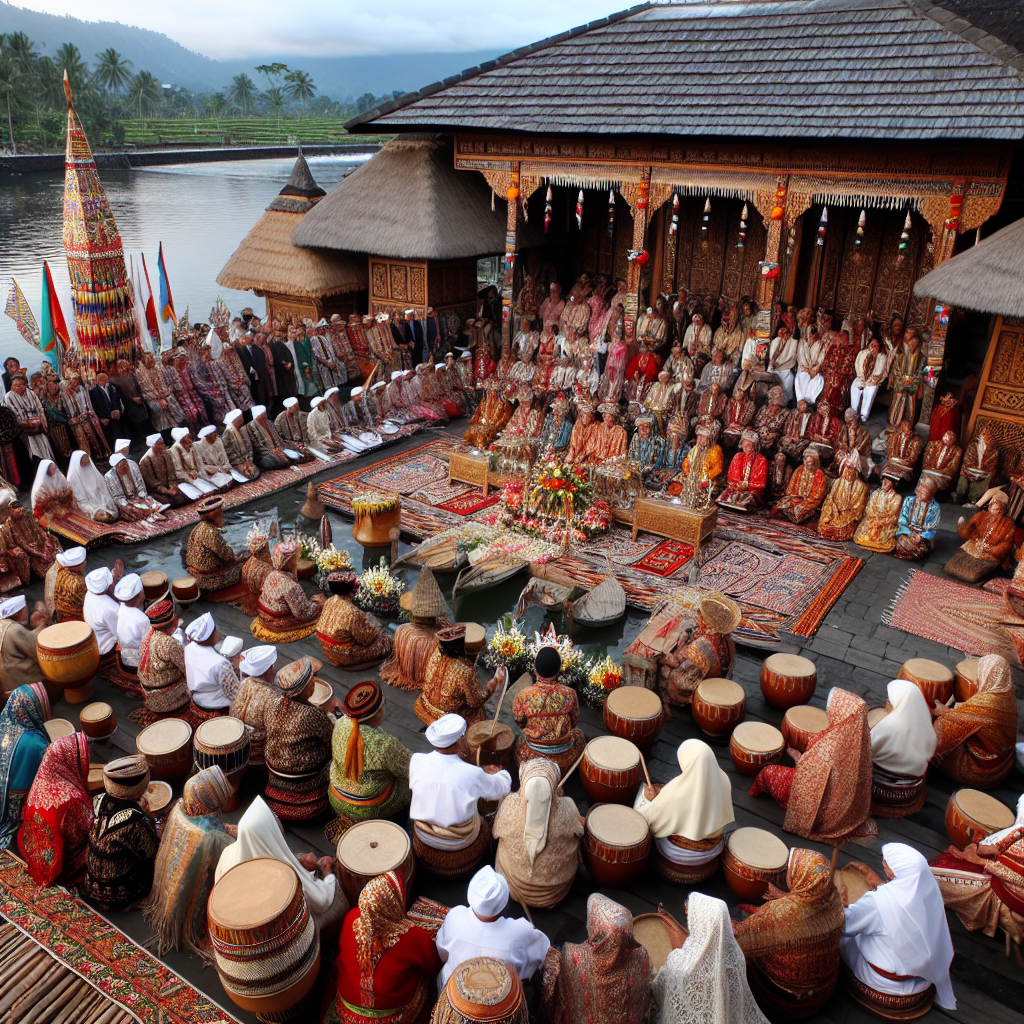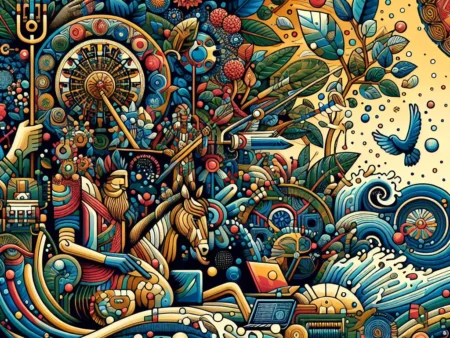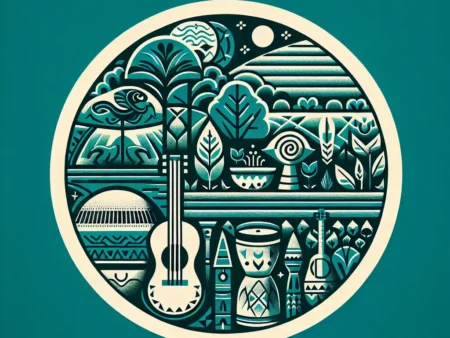Upacara adat menjaga warisan budaya melalui ritual dan tradisi yang diwariskan secara turun-temurun untuk mempertahankan identitas dan nilai-nilai budaya.
Upacara Adat yang Menjaga Warisan Budaya
-
Table of Contents
- Introduction
- The Significance of Upacara Adat
- Preserving Cultural Heritage
- Transmitting Cultural Values
- Strengthening Community Bonds
- Types of Upacara Adat
- Pasola
- Ngaben
- Ma’nene
- The Challenges of Preserving Upacara Adat
- Urbanization and Modernization
- Declining Interest and Participation
- Environmental and Economic Factors
- Preservation Efforts and Solutions
- Government Support
- Community Involvement
- Tourism and Cultural Promotion
- Conclusion
Introduction

Indonesia is a country rich in cultural heritage, with a diverse range of traditional customs and rituals that have been passed down through generations. These customs, known as “Upacara Adat,” play a crucial role in preserving and safeguarding the country’s cultural heritage. Upacara Adat refers to traditional ceremonies and rituals that are performed to mark significant events or milestones in the lives of individuals or communities. These ceremonies not only serve as a way to honor ancestors and deities but also act as a means of transmitting cultural values and traditions to future generations.
The Significance of Upacara Adat
Upacara Adat holds immense significance in Indonesian society. It serves as a way to maintain a connection with the past and preserve cultural identity. These ceremonies are deeply rooted in the beliefs, values, and traditions of various ethnic groups across the archipelago. They provide a sense of belonging and unity among community members, reinforcing social cohesion and solidarity.
Preserving Cultural Heritage
One of the primary purposes of Upacara Adat is to preserve Indonesia’s cultural heritage. These ceremonies are often performed in accordance with age-old traditions and customs, ensuring that the knowledge and practices associated with them are passed down from one generation to the next. By actively participating in these rituals, younger members of the community learn about their cultural roots and gain a deeper understanding of their heritage.
Transmitting Cultural Values
Upacara Adat also serves as a means of transmitting cultural values and norms. Through these ceremonies, important life lessons and moral teachings are imparted to younger generations. For example, during a wedding ceremony, the couple is not only united in matrimony but also taught about the importance of commitment, respect, and loyalty. Similarly, in coming-of-age ceremonies, young individuals are guided on their journey to adulthood, learning about responsibility, humility, and the significance of community.
Strengthening Community Bonds
Upacara Adat plays a vital role in strengthening community bonds. These ceremonies are often communal events that bring together people from different walks of life. They provide an opportunity for individuals to connect, share experiences, and build relationships. The sense of togetherness and unity fostered during these ceremonies helps create a strong support system within the community, promoting social harmony and cooperation.
Types of Upacara Adat
There are numerous types of Upacara Adat practiced across Indonesia, each unique to the specific ethnic group or region. Here are a few notable examples:
Pasola
Pasola is a traditional ceremony celebrated by the Sumba people of East Nusa Tenggara. It involves a mock battle on horseback, where participants throw wooden spears at each other. Pasola is believed to ensure a bountiful harvest and maintain the balance between the spiritual and physical worlds.
Ngaben
Ngaben is a Balinese Hindu cremation ceremony. It is a highly elaborate and sacred ritual that involves the cremation of the deceased. Ngaben is seen as a way to release the soul from the body and guide it to the afterlife. The ceremony is accompanied by music, dance, and offerings to honor the departed.
Ma’nene
Ma’nene is a unique ceremony practiced by the Toraja people of South Sulawesi. It involves exhuming the bodies of deceased family members, cleaning and dressing them, and then parading them through the village. Ma’nene is a way for the Toraja people to honor their ancestors and maintain a connection with them.
The Challenges of Preserving Upacara Adat
While Upacara Adat plays a crucial role in preserving Indonesia’s cultural heritage, it faces several challenges in the modern era. Here are some of the key challenges:
Urbanization and Modernization
As Indonesia becomes increasingly urbanized and modernized, traditional customs and rituals are at risk of being forgotten or marginalized. The younger generation, influenced by Western culture and globalization, may not see the relevance or value in participating in Upacara Adat. This poses a significant threat to the continuity of these traditions.
Declining Interest and Participation
With the advent of technology and changing lifestyles, the interest and participation in Upacara Adat have declined. Younger generations are more inclined towards modern forms of entertainment and may not prioritize attending traditional ceremonies. This lack of interest can lead to a loss of knowledge and skills associated with these rituals.
Environmental and Economic Factors
Some Upacara Adat ceremonies require specific natural resources or materials that may be scarce or expensive to obtain. For example, certain rituals involve the use of rare plants or animal products, which can contribute to environmental degradation or pose ethical concerns. Additionally, the cost of organizing elaborate ceremonies can be a financial burden for some communities.
Preservation Efforts and Solutions
Recognizing the importance of preserving Upacara Adat, various initiatives have been undertaken to safeguard these traditions. Here are some notable preservation efforts:
Government Support
The Indonesian government has recognized the significance of Upacara Adat and has taken steps to support its preservation. This includes providing funding for cultural events, establishing cultural centers, and promoting awareness through education and media campaigns.
Community Involvement
Communities themselves play a crucial role in preserving Upacara Adat. By organizing and actively participating in these ceremonies, community members ensure the continuity of their cultural heritage. Efforts such as intergenerational knowledge transfer, cultural workshops, and community-led initiatives help keep these traditions alive.
Tourism and Cultural Promotion
Tourism can also contribute to the preservation of Upacara Adat. By promoting these ceremonies as cultural attractions, communities can generate income while raising awareness about their traditions. However, it is essential to strike a balance between commercialization and maintaining the authenticity and integrity of these rituals.
Conclusion
Upacara Adat plays a vital role in preserving Indonesia’s cultural heritage. These traditional ceremonies not only serve as a way to honor ancestors and deities but also act as a means of transmitting cultural values and traditions to future generations. Despite the challenges posed by urbanization, declining interest, and environmental factors, various preservation efforts are underway. With government support, community involvement, and responsible tourism, Upacara Adat can continue to thrive, ensuring the preservation of Indonesia’s rich cultural diversity for generations to come.







